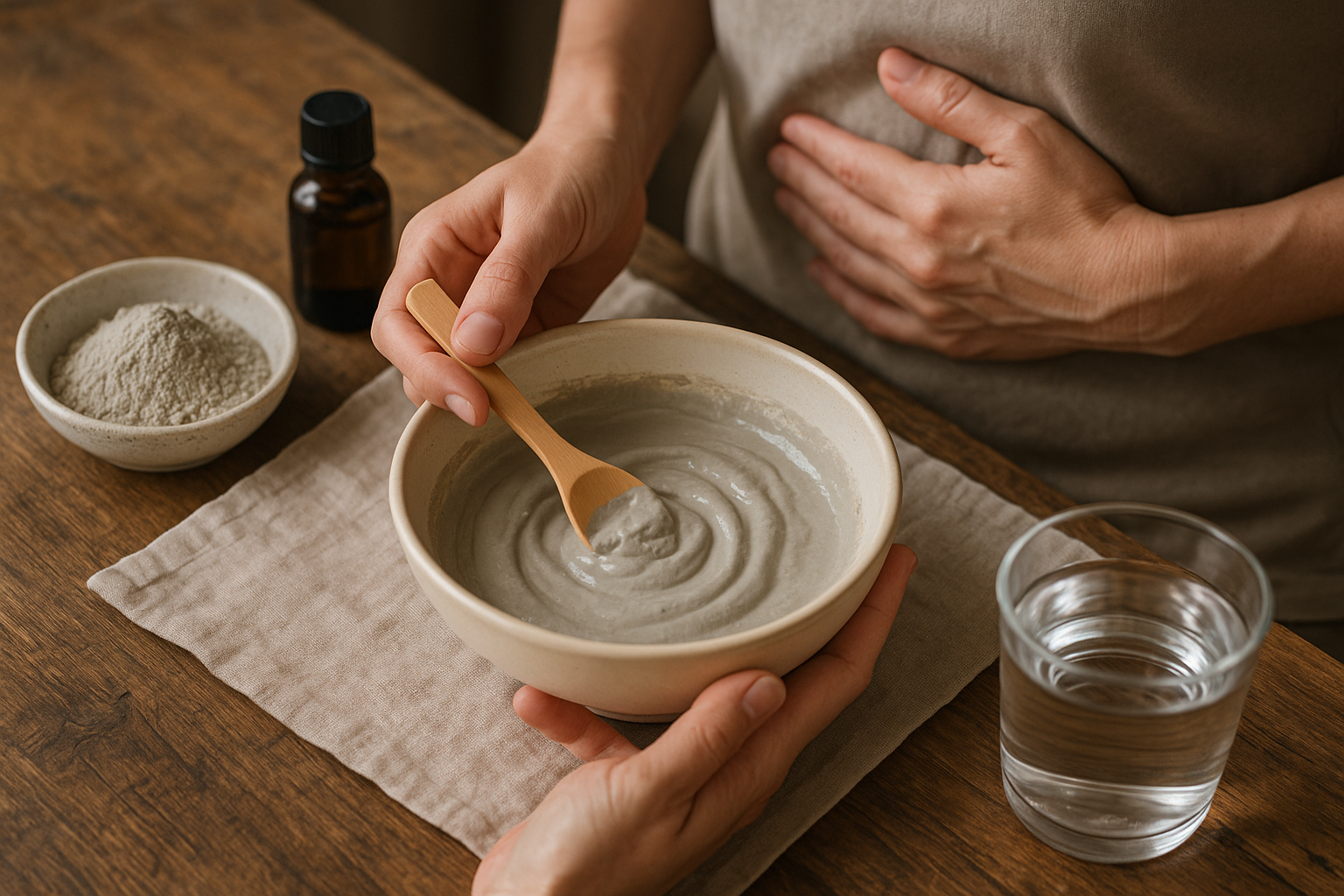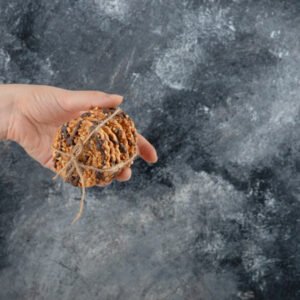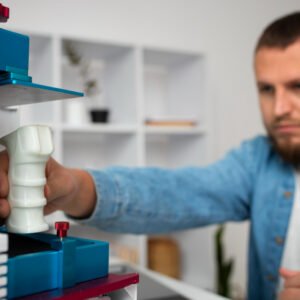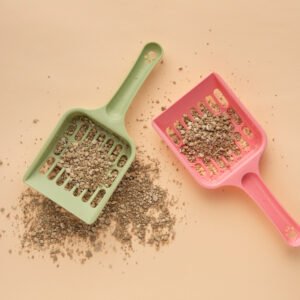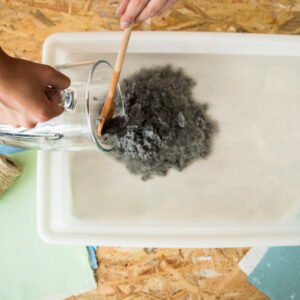Stomach ulcers affect millions of people worldwide, causing discomfort, pain, and disrupting daily life. While conventional treatments exist, many individuals are turning to natural remedies like bentonite clay for digestive health support. This ancient healing clay has gained attention for its potential therapeutic properties, particularly in addressing gastrointestinal issues.
Bentonite clay for stomach ulcers represents a growing area of interest in natural health circles. This naturally occurring clay, formed from volcanic ash, contains unique properties that may help support digestive wellness. Understanding how to properly use this mineral-rich substance can provide valuable insights for those seeking alternative approaches to ulcer management.
Understanding Bentonite Clay and Its Properties
Bentonite clay is a natural volcanic ash clay that has been used for centuries in traditional medicine practices. The clay is primarily composed of hydrated aluminium silicate and contains essential minerals including calcium, iron, and magnesium. Its most distinctive characteristic is its remarkable ability to absorb toxins and impurities.
The clay’s therapeutic potential stems from its unique molecular structure. When mixed with water, bentonite clay develops a negative electrical charge that attracts positively charged toxins, bacteria, and other harmful substances. This process, known as adsorption, allows the clay to bind with unwanted materials in the digestive system.
India has abundant reserves of high-quality bentonite clay, with companies like CMS Industries leading the manufacturing and export of premium-grade bentonite products. CMS Industries, an ISO 9001:2015 certified company with manufacturing units strategically located at Mandvi Taluka, Gujarat, produces above 9000 Metric Tons of Bentonite powder monthly.
The Science Behind Bentonite Clay for Digestive Health
Research indicates that bentonite clay may offer several benefits for digestive health. Studies have shown bentonite’s effectiveness in treating pain, wound healing, colitis, diarrhea, hemorrhoids, stomach ulcers, and intestinal problems. The clay’s ability to bind with toxins and harmful bacteria makes it particularly relevant for gastrointestinal applications.
Adsorbent clays, such as bentonite, may help alleviate virus-related digestive issues, such as diarrhea. This property extends to other digestive problems, including ulcer-related complications. The clay’s natural detoxifying properties can help create a more balanced digestive environment.
Bentonite clay for stomach ulcers works through multiple mechanisms:
- Toxin absorption and elimination
- Protective coating formation on stomach lining
- Antimicrobial activity against harmful bacteria
- pH balance restoration in the digestive tract
Traditional Uses and Modern Applications
Traditional medicine systems have long recognised bentonite clay’s healing properties. In Ayurveda, clay-based remedies have been used to treat various digestive ailments. Modern research has begun to validate many of these traditional applications, providing scientific backing for age-old practices.
Research has shown that 3 grams of bentonite taken daily for 8 weeks effectively helped regulate bowel habits in constipation-dominant IBS. This demonstrates the clay’s potential for addressing various digestive concerns beyond just ulcers.
The clay’s versatility extends to multiple health applications, making it a valuable addition to natural health protocols. Its ability to support digestive health while being gentle on the system makes it suitable for long-term use when properly administered.
How to Prepare and Use Bentonite Clay for Stomach Ulcers
Basic Preparation Method
Preparing bentonite clay for internal use requires careful attention to quality and cleanliness. Always source pharmaceutical-grade or food-grade bentonite clay from reputable manufacturers. CMS Industries ensures high-quality bentonite products that meet international standards for purity and safety.
Preparation Steps:
- Use 1-2 teaspoons of pure bentonite clay powder
- Mix with 250ml of filtered or purified water
- Stir thoroughly using a non-metallic spoon (plastic or wooden)
- Allow the mixture to sit for 10-15 minutes
- Stir again before consumption
Recommended Dosage and Timing
Start with smaller amounts to allow your body to adjust. Begin with half a teaspoon mixed in water, taken once daily on an empty stomach. Gradually increase to 1-2 teaspoons if well-tolerated. The optimal timing is:
- Morning: 30 minutes before breakfast
- Evening: 2 hours after dinner
- Between meals: When stomach is relatively empty
Important Considerations
When using bentonite clay for stomach ulcers, certain precautions are essential:
- Always use filtered or purified water
- Avoid metal utensils or containers
- Drink plenty of water throughout the day
- Start with small doses to assess tolerance
- Maintain consistent timing for best results
Potential Benefits for Ulcer Management
The application of bentonite clay for digestive health, particularly ulcer management, shows promise through several mechanisms. The clay’s ability to form a protective barrier on the stomach lining may help shield ulcerated areas from acidic gastric juices.
Detoxification Properties
Studies show bentonite clay may lower the amount of certain toxins in the body, like aflatoxins, and help treat metal poisoning. This detoxification capacity extends to the digestive system, potentially removing harmful substances that contribute to ulcer formation or progression.
Antimicrobial Effects
The clay’s natural antimicrobial properties may help address H. pylori bacteria, a common cause of stomach ulcers. While not a replacement for conventional treatment, it may provide supportive benefits when used alongside proper medical care.
Inflammation Reduction
Regular use of bentonite clay may help reduce inflammation in the digestive tract, creating a more favourable environment for ulcer healing. The clay’s mineral content provides essential nutrients that support tissue repair and regeneration.
In this blog, you can also explore the top 10 benefits of Bentonite Clay for managing oily skin and scalp naturally.
Safety Considerations and Precautions
While bentonite clay is generally considered safe for most people, certain precautions should be observed:
Medical Consultation: Always consult with a healthcare provider before starting any new treatment, especially if you have existing health conditions or take medications.
Quality Matters: Source your bentonite clay from reputable manufacturers like CMS Industries, which maintains strict quality controls and international standards.
Hydration: Increase water intake when using bentonite clay to prevent constipation and support proper elimination.
Medication Interactions: Bentonite clay may affect the absorption of certain medications. Take medications at least 2 hours before or after clay consumption.
Choosing Quality Bentonite Clay
The effectiveness of bentonite clay treatment depends largely on the quality of the product used. High-quality bentonite clay should be:
- Free from contaminants and additives
- Properly processed and purified
- Sourced from reputable geological deposits
- Tested for heavy metals and other impurities
CMS Industries, being one of India’s leading bentonite manufacturers, ensures that their products meet international quality standards. The company’s strategic location near world-class ports and capacity to produce premium quality bentonite makes it a reliable source for therapeutic-grade clay.
Complementary Approaches
While exploring bentonite clay for stomach ulcers, consider integrating other supportive measures:
Dietary Modifications
- Consume smaller, more frequent meals
- Avoid spicy, acidic, or processed foods
- Include healing foods like honey, cabbage juice, and probiotics
- Stay adequately hydrated throughout the day
Lifestyle Changes
- Manage stress through relaxation techniques
- Maintain regular sleep patterns
- Avoid smoking and excessive alcohol consumption
- Practice mindful eating habits
Supporting Supplements
Consider complementary natural supplements that may work synergistically with bentonite clay:
- Probiotics for gut health
- Slippery elm for digestive coating
- Zinc for tissue healing
- Aloe vera for anti-inflammatory effects
Monitoring Progress and Adjustments
Track your symptoms and overall well-being when using bentonite clay. Keep a journal noting:
- Daily dosage and timing
- Symptom changes or improvements
- Any side effects or concerns
- Energy levels and overall digestive comfort
This information helps determine the optimal approach for your individual needs and provides valuable feedback for healthcare providers.
Integration with Modern Medicine
Bentonite clay for stomach ulcers should be viewed as a complementary approach rather than a replacement for conventional medical treatment. Work with healthcare providers to develop an integrated treatment plan that may include:
- Conventional ulcer medications as prescribed
- Natural remedies like bentonite clay
- Dietary and lifestyle modifications
- Regular monitoring and follow-up care
Conclusion
Bentonite clay represents a promising natural approach for supporting digestive health and potentially aiding in ulcer management. Its unique properties, including toxin absorption, antimicrobial effects, and protective barrier formation, make it a valuable addition to comprehensive ulcer care protocols.
Success with bentonite clay for stomach ulcers depends on proper preparation, consistent use, and high-quality sourcing. Companies like CMS Industries provide the reliable, pure bentonite clay products necessary for therapeutic applications.
Remember that while natural remedies offer valuable support, they work best as part of a comprehensive approach that includes proper medical care, dietary modifications, and lifestyle changes. Always consult with healthcare providers before beginning any new treatment regimen.
Take the first step towards natural digestive wellness by exploring high-quality bentonite clay options and discussing this approach with your healthcare provider. Your journey to improved digestive health may benefit from the ancient wisdom of this remarkable healing clay.
Frequently Asked Questions
Q1: How long does it take to see results when using bentonite clay for stomach ulcers?
Results vary by individual, but many people notice initial digestive improvements within 2-4 weeks of consistent use. Complete healing may take several months alongside proper medical treatment.
Q2: Can I take bentonite clay with other medications for ulcers?
Always consult your healthcare provider before combining bentonite clay with medications. Generally, take clay at least 2 hours before or after other medications to avoid absorption interference.
Q3: What type of bentonite clay is best for stomach ulcers?
Food-grade or pharmaceutical-grade sodium bentonite clay is recommended. Choose products from reputable manufacturers like CMS Industries that ensure purity and quality standards.
Q4: Are there any side effects of using bentonite clay for digestive issues?
Most people tolerate bentonite clay well. Possible side effects include constipation if inadequate water is consumed, or mild digestive discomfort when first starting. Begin with small doses.
Q5: Can I use bentonite clay long-term for ulcer prevention?
While generally safe for extended use, long-term application should be discussed with a healthcare provider. Regular monitoring ensures optimal benefits without potential mineral imbalances or other concerns.



